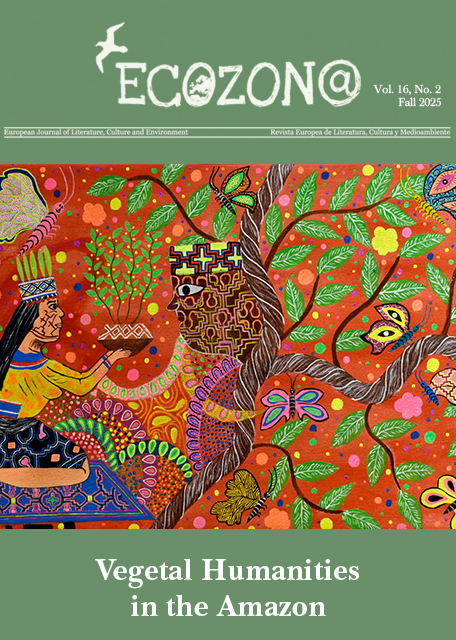Ecocriticism in Turkey
DOI:
https://doi.org/10.37536/ECOZONA.2020.11.2.3489Parole chiave:
Turkish ecocriticism, Turkish literature, Ecocritical theory, film and media, interdisciplinarityAbstract
Ecocriticism has gained visibility in Turkish academia in the early 2000s. This essay offers a brief analysis of the status of the field in Turkey and sheds light on the growing interest in ecology in both academic and non-academic circles. I first overview the academic conventions and publications that provided the initial momentum for the birth of Turkish ecocriticism. I examine past and current trends in ecocritical studies by surveying the latest academic publications, literary works and traditions that lend themselves to ecocritical analyses, and specific ecological questions pertinent to Turkey’s geography. I then address future directions for research in the field and investigate the expanding interest in ecology across different disciplines such as film, visual arts and media. I conclude the essay by highlighting the interdisciplinary platforms that bring together researchers and practitioners to enable new forms of environmental criticism and activism at a time of immense neoliberal growth.
Downloads
##submission.downloads##
Pubblicato
Fascicolo
Sezione
Licenza
Authors who publish with this journal agree to the following terms:
a) Authors retain copyright and grant the journal right of first publication with the work simultaneously licensed under a Creative Commons Attribution License that allows others to share the work with an acknowledgement of the work's authorship and initial publication in this journal (CC BY-NC for articles and CC BY-NC-ND for creative work, unless author requests otherwise.
b) Authors are able to enter into separate, additional contractual arrangements for the non-exclusive distribution of the journal's published version of the work (e.g., post it to an institutional repository or publish it in a book), with an acknowledgement of its initial publication in this journal.
c) Authors are permitted and encouraged to post their work online (e.g., in institutional repositories or on their website) prior to and during the submission process, as it can lead to productive exchanges, as well as earlier and greater citation of published work (See The Effect of Open Access).










